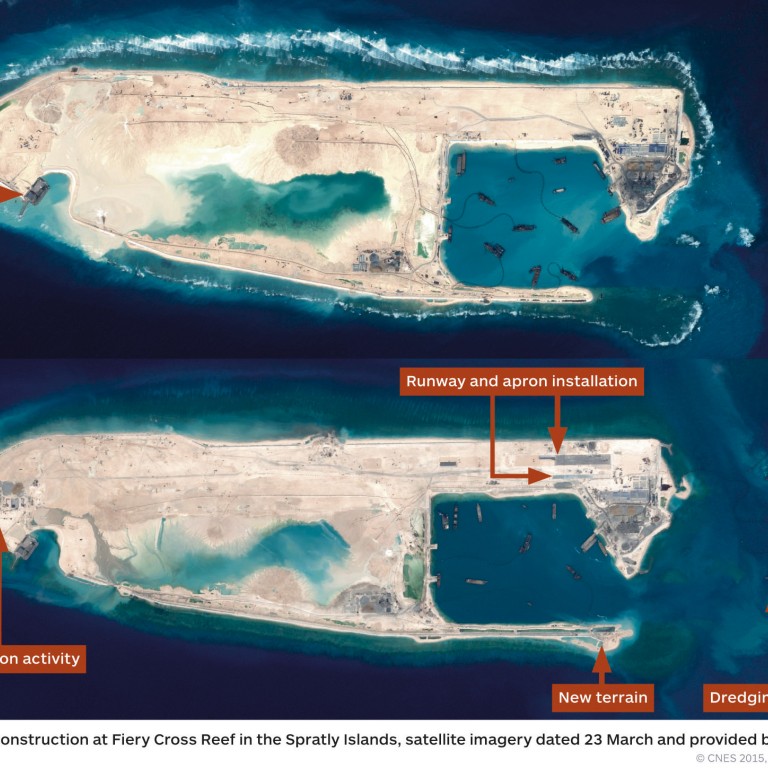
Beijing ‘will push ahead’ building in disputed areas of South China Sea
Vietnam and Philippines strengthened ties to counter China’s claims to contested waters unlikely to shift policy, say analysts
Vietnam and the Philippines attempts to form a strategic partnership amid China’s increasingly assertive claims to areas of the South China Sea will not deter Beijing from beefing up its presence in the disputed waters, according to Chinese analysts.
China will, however, be wary of further antagonising neighbours in the region and driving them into closer partnerships with its strategic rivals the United States and Japan, they said.
Aquino angered Beijing last year after he said the world’s failure to support the Philippines in countering China’s expansionist ambitions in the South China Sea was like the West failing to come to the aid of Czechoslovakia against Nazi Germany in 1938.
Xu Liping, a professor studying diplomacy in Southeast Asia at the Chinese Academy of Social Sciences, said Beijing would not view any partnership between Hanoi and Manila as solid enough to challenge its position.
“Vietnam and the Philippines also have competing claims for sovereignty in the Spratly chain of islands in the South China Sea,” Xu said.
“Under such circumstances, it is difficult for Vietnam and the Philippines to form a strong, united front.”
Vietnam’s position to counter China in territorial disputes in the South China Sea was also weakened because of the importance of its trade ties with Beijing to further its economic development, said Xu.
This was in evidence when Vietnam’s Communist Party chief Nguyen Phu Trong visited Beijing earlier this month and told President Xi Jinping that the two nations should develop friendly ties, he said.
A partnership between Vietnam and the Philippines would annoy Beijing, but China’s focus will be on superpower the United States and to a lesser extent Japan over its territorial claims in the South China Sea and the East China Sea, according to Zhang Mingliang, a Southeast Asian affairs expert at Jinan University.
Japan has used its clout to push the Group of Seven major industrial nations to adopt a document opposing the use of intimidation to press maritime claims, widely believed to be referring to China.
Li Mingjiang, an associate professor at the S. Rajaratnam School of International Studies in Singapore, agreed Beijing would not stop its reclamation work in the South China Sea, but will be wary of antagonising other nations in the area, including Malaysia and Brunei.
“Too much tension will make Southeast Asian nations embrace the military presence of the US, or even Japan, and Beijing doesn’t want to see that,” Li said.
President Aquino said in his interview with the Post that he supported Japan amending its pacifist constitution, introduced after the second world war, to increase its military role in the region.
Li said: “If the constitution is amended then it would be easier for Japan to step up security engagement in Southeast Asia, such as having more military drills. Southeast Asian nations actually welcome Japan.”

